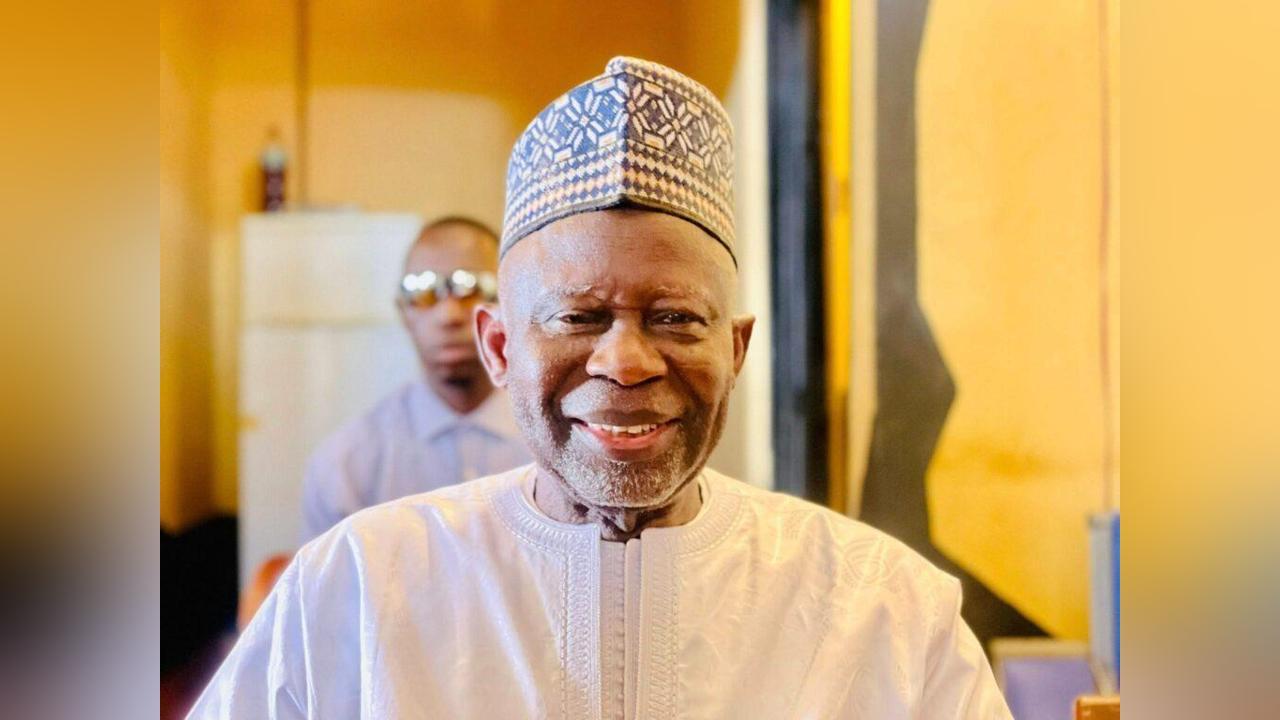Africa-Press – Gambia. It’s almost certain that veteran opposition leader Ousainu Darboe will emerge as UDP’s candidate for the 2026 presidential elections. This became even clearer today after KM Mayor Talib Bensouda withdrew his candidacy for the party’s ticket. Talib was seen as the only viable challenge to Darboe. And with his withdrawal and resignation as the National Organizing Secretary of the UDP, it’s clear that the party’s internal turmoil has taken a turn for the worse.
As Darboe looks forward to his sixth presidential run, the septuagenarian needs an introspection regarding what this ambition means for him, but more importantly, the country that wants a departure from the NPP nine-year maladministration.
Critically, the veteran lawyer needs self-reflection about the viability of a successful campaign against a potential Barrow rematch. There are a few things the 77-year-old must consider as he goes through this process of another presidential run.
First, Darboe must reflect on what has changed for him politically since his grueling loss to President Barrow in the 2021 polls. That poll, despite being fiercely contested, ended up with Darboe losing to Barrow by a staggering 200K plus votes. It’s true that UDP has since gone on to animate voters and performed well in subsequent national elections – legislative and local governments – and has largely remained very active both home and abroad. However, those elections were won by my young UDP leaders.
Secondly, a content analysis of the online political discourse indicates some strong perceptions that have not changed about the veteran lawyer. While Darboe continues to enjoy strong support among his political base, there are those with a strong perception that Darboe is not only “unelectable” but a “polarizing figure” who has not yet convinced them that he would be any different from Barrow. Darboe supporters may disagree with this assessment. However, perception plays a critical role in elections. That’s why political strategists deploy colossal resources to debunk biased narratives that are damaging. In the 2021 presidential elections, Barrow and his NPP successfully pushed a damaging narrative against the UDP that worked.
Thus, it’s important that Darboe reflects on public perception about him and determines if he has any chance of significantly rolling it back ahead of 2026. Ignoring that as a mere perception being held by Darboe “haters” would be a rookie political mistake that could be detrimental.
Data and why it matter
Arguably, independent public opinion polling offers snapshots about public sentiments ahead of major elections. They give us insights into how the public feels about various issues.
The recent opinion poll (CepRass, 2025) offers a gloomy picture for Darboe ahead of 2026. In the said poll, Darboe polled poorly as findings show that Gambians prefer a younger candidate. Even for a potential rematch with Barrow, Darboe trailed the former (CepRass, 2025).
Since the poll findings were released, there have been various reactions. Some skeptics have dismissed it outright, faulting methodology, timing, sampling, etc. Others fully embraced it, pointing to CepRass’ reputation of accuracy.
Regardless of anyone’s position, a review of CepRass polls since 2021 shows a strong trajectory of accuracy albeit with some margins of error, typical in polls like this. In the 2021 presidential elections, CepRass projected a win for NPP, which came to pass. In the 2022 National Assembly elections, CepRass projected that the opposition would win a majority of seats in the Kanifing and Brikama Administrative areas, which were confirmed by a UDP enhanced performance in these regions. In the 2023 local government elections, CepRass projected that the opposition UDP was likely to win in Banjul, KM, WCR, and LRR: projections confirmed by the elections.
Therefore, it will be a political miscalculation to ignore this trajectory. While Darboe has not dismissed the findings, he seems to be comfortable that UDP’s political base is intact. As factual as this may be, that conclusion is insufficient considering that undecided voters would likely decide the 2026 elections based on the recent polling where nearly 30 percent are undecided (CepRass, 2025). And given Darboe’s poor polling – 12 percent shot at winning the presidency – according to CepRass’ latest poll, the veteran lawyer needs to do some soul-searching.
For what it’s worth, the recent findings offer a compelling reason why Darboe should reflect on a viable campaign.
Meanwhile, Darboe, for the first time, is likely to preside over a depleted and hugely divided UDP. As I discussed in my previous analysis, UDP’s strength has always lied in its unity. The party will need its base intact if it were to be successful in the 2026 elections. Darboe’s candidacy will mean little if he presides over this political turmoil ahead of the polls.
Talib’s Resignation
Arguably, Talib’s abrupt resignation as the National Organizing Secretary of the UDP is a significant blow to the main opposition party. Anyone who is a good political observer would notice that the KM Mayor not only invested and helped rebrand the party but also animated a lot of voters. He is relatable to young voters across party lines, and his political stock has increased since his re-election as KM mayor in 2023. He has polled favorably in the most recent poll where 50 percent of Gambians believe he should run for president regardless of party affiliations (CepRass, 2025). Given this, Talib’s supporters had a strong case in projecting that the party stood the best chance with him as their standard bearer for 2026.
Should Darboe emerge as UDP flag bearer and proceed with another presidential run, he faces an uphill task of defeating Barrow. From all indications, his odds of defeating Barrow are tougher today than they were in 2021.
For More News And Analysis About Gambia Follow Africa-Press






